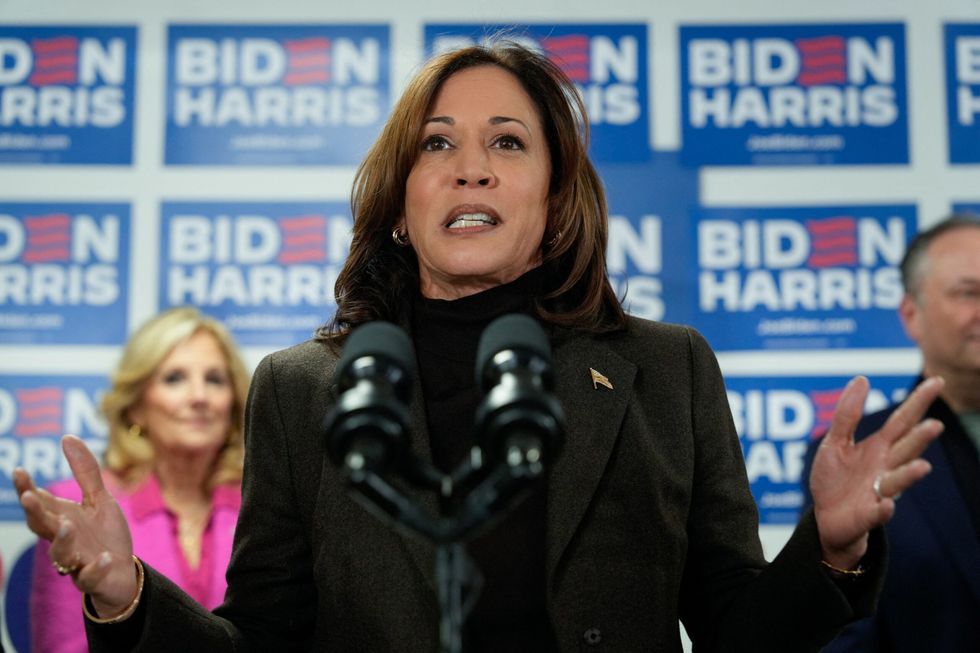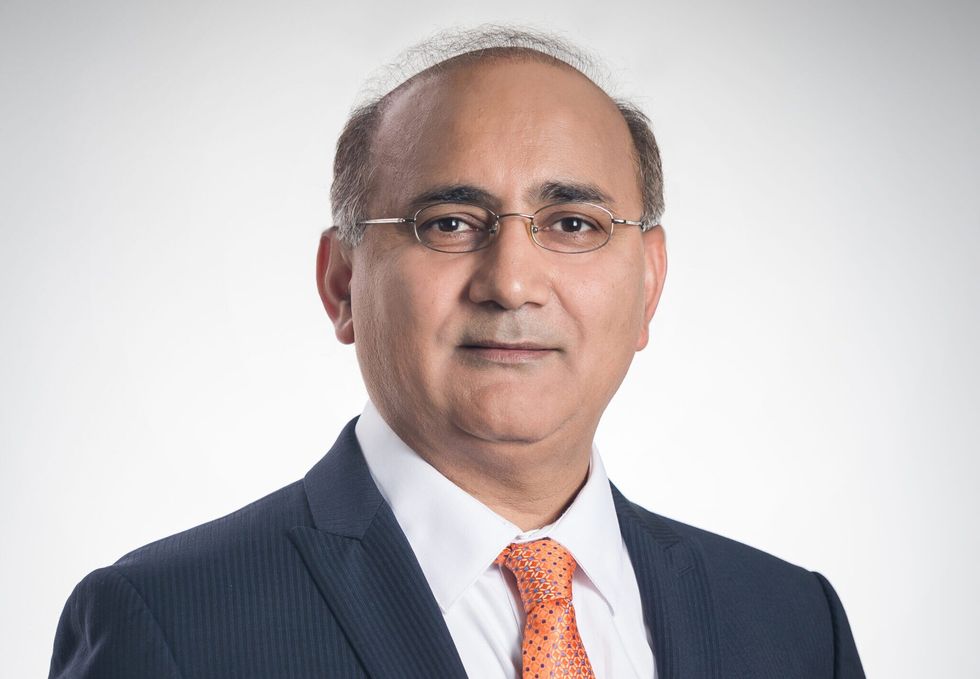WALT WHITMAN wrote “I am large. I contain multitudes,” anticipating a multicultural America at its founding.
Two of our politicians speak to the psychology of their multicultural identity in contemporary times.
As the race for the 2024 US presidential election heats up, former South Carolina governor Nimarata ‘Nikki’ Randhawa Haley has emerged as one of the leading GOP candidates. Recently, when she was asked about the causes of the Civil War, she fumbled, forgot to mention the cause of slavery and later apologised for it.
Is it possible for two first-generation immigrants, women of south Asian descent, to be running for the vice-president of America (potentially a heartbeat away from the presidency)?
That they have embraced opposing views of American exceptionalism makes the story predictable, yet interesting.
We already have a black south Asian female vice-president in Kamala Devi Harris.
Her mother, Shyamala Gopalan, came from Chennai to the US to study endocrinology at UC Berkeley in 1958, a decade after India’s independence. She married a Berkeley-educated, Stanford economist, Donald J Harris, whose family was from Jamaica, a post-colonial outpost that gained independence [from Britain] in 1962, and which was the birthplace of reggae music and Island Records.
Shyamala’s ancestors fought for India’s freedom, while Donald’s family may have had descendants who had owned slaves on Jamaica’s sugar plantations.
On a recent visit to Antigua and Barbuda, we were reminded of the history of British colonialism, and trade between the colonies that fuelled the rise of early capitalism, while Bob Marley’s Buffalo Soldier filled the air.
Buffalo Soldier ... Stolen from Africa, brought to America. Fighting on arrival, fighting for Survival.”
Vice-president Harris has said she used to visit both sides of her family – in Chennai, India, and Brown’s Town, Jamaica – and understands how her own story is intertwined with the history of slavery and post-colonialism. She identifies herself as black, south Asian, and quintessentially American. Harris obviously embraces America’s exceptional multiculturalism.

Her mother met her father at an Afro-American Association meeting at Berkeley in the fall of 1962.
Donald, who retired as a professor of economics at Stanford, said, “We talked then, continued to talk at a subsequent meeting, and at another, and another.” Flouting all Tamil Brahmin customs, Shyamala married Donald in 1963; neither had her parents met the groom, nor did the couple have a ceremony in her hometown.
In 1964, the Harris family travelled to newly independent Zambia, where vice-president Harris’ grandfather had an assignment.
In 1970, when Shyamala divorced Donald, she would take the family to visit Chennai regularly. Shyamala became a known cancer researcher at Berkeley – when she passed away at 70, Kamala took her ashes to Chennai to scatter them in the waters of the Indian Ocean.
The vice-president embraces what psychologists have called a multicultural identity, where various aspects of her identification are given relatively equal weight, leading to integration and well-being.
Haley, on the other hand, belongs to a family of warriors. Continuing the Sikh tradition of her people – her husband, Michael Haley, and brother, Mitti Randhawa – have served in combat in Iraq and Afghanistan.
She was the first female governor of South Carolina; she also took down the Confederate flag after the shooting of black parishioners at the Emanuel African Methodist Church in Charleston in 2015 by a white nationalist.
She served as the UN secretary under Trump, who is now spreading a “birther controversy” about her name not being American enough. Yet, she has steadfastly claimed the “US is not a racist country”.
She once checked on her voter registration card that she was ‘white’ when the census classifications were not clear about the ‘Asian’ category on the census form.
Haley has tried to balance the nativist vision of America exceptionalism that is prevalent in her party with her Indian heritage.
The Randhawa family has ancestral ties to the city of Amritsar, the holy city of the Sikh faith, and she visited the Golden Temple in 2014 as a governor.
Her family moved from Amritsar, Punjab, to British Columbia, Canada, in 1964, where her father Ajit Singh received a scholarship in biology. After finishing his PhD, her father moved the family to South Carolina where he was to become a professor at a historically black college.
Her mother, Raj Kaur, a trained lawyer from India, became a business owner and entrepreneur in clothing business, where young Nikki did a stint at bookkeeping and accounting, eventually becoming a CFO of the company.
This raises a curious question: How is it that Haley, who was the governer of a state where the Civil War started, could forget about the root causes of America’s bloody history? Her parents hail from Punjab, which has seen its share of political violence, where history is filled with martyrs and even children on the street are familiar with the [Jallianwala Bagh] butchery of General Dyer.

We have a sneaking suspicion as to why she didn’t mention slavery. The party of Lincoln may now want to reassess the history of the Civil War under their new leadership. However, there is a silver lining in all this. Only in America can we witness two first-generation immigrant female candidates, vying for the top job, who are, to quote Thomas Paine, trying “to start the world over again”.
Dr Dinesh Sharma is director and chief research officer at Steam Works Studio, an education-tech venture in Princeton, New Jersey, and adjunct professor at Fordham and NYU, NYC.
Amartya Sharma is a political science student at George Washington University, DC.





 Heehs describes two principal approaches to biographyAMG
Heehs describes two principal approaches to biographyAMG












 David Beckham wearing a David Austin Roses "King's Rose" speaks with King Charles III during a visit to the RHS Chelsea Flower Show at Royal Hospital Chelsea on May 20, 2025Getty Images
David Beckham wearing a David Austin Roses "King's Rose" speaks with King Charles III during a visit to the RHS Chelsea Flower Show at Royal Hospital Chelsea on May 20, 2025Getty Images
Differing identities of Haley and Harris
Psychology of opponent politicians’ multiculturalism in today’s America explained